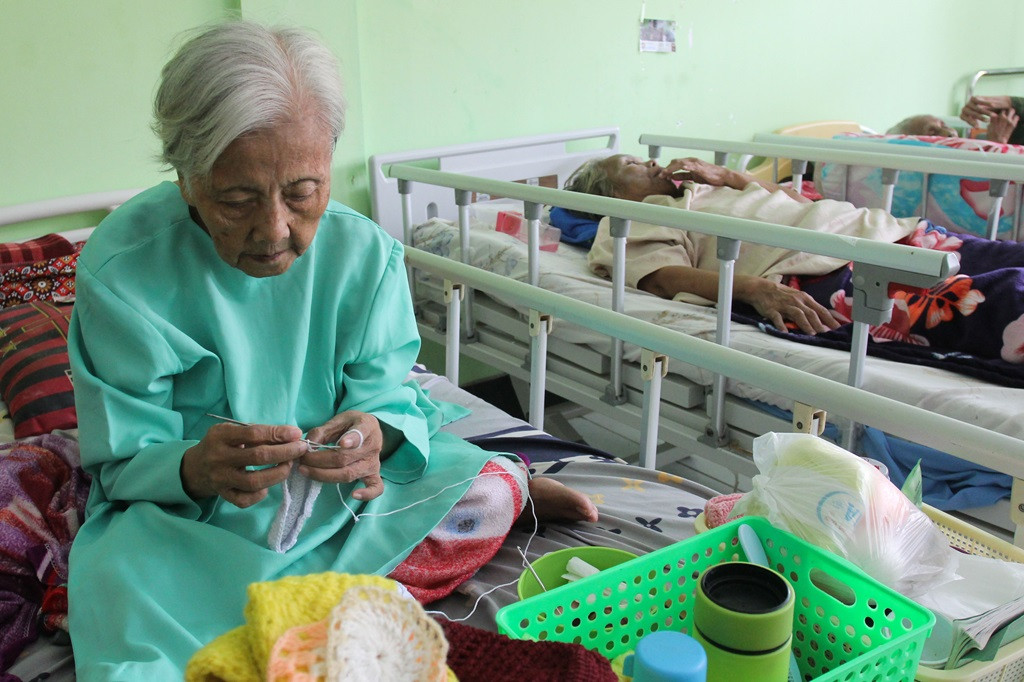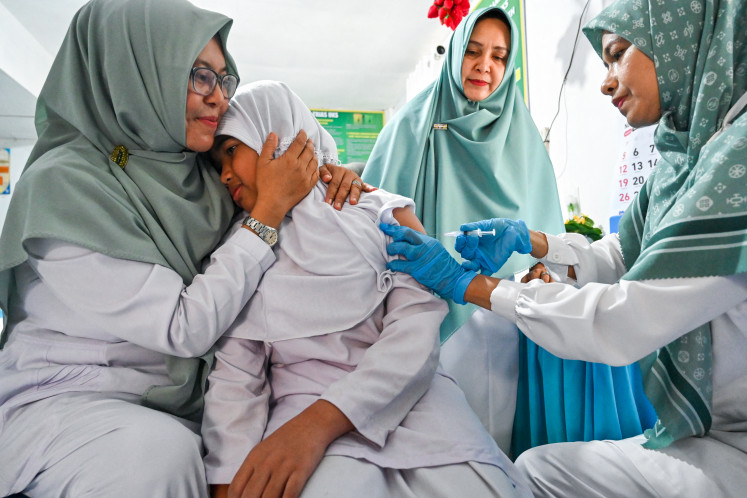Popular Reads
Top Results
Can't find what you're looking for?
View all search resultsPopular Reads
Top Results
Can't find what you're looking for?
View all search resultsInclusive elderly care: Creating pathways for a better future
Elderly care should be a community-wide duty. When family resources are limited, community support can make a significant difference.
Change text size
Gift Premium Articles
to Anyone
I
ndonesia’s cultural expectations dictate that families take care of their elderly members, often by having them reside with or near their adult children. This practice symbolizes gratitude for parental upbringing and respect for elders.
However, societal shifts, such as widespread migration for work and soaring housing costs, have strained this tradition. Children of elderly parents must precariously balance their own family's lives with the demands of caring for their aging parents.
The elderly population in Indonesia is set to increase by 20 percent by 2045, mirroring the demographic profile of Organization for Economic Co-operation and Development (OECD) countries in the 2010s. This surge will push the dependency ratio, from the current 44 percent to an estimated 54 percent by 2050, intensifying the pressure on the younger generation to support themselves, their families and their elderly relatives.
This trend threatens to diminish the well-being of the elderly population, potentially leading to a sharp rise in the number of older people facing difficult living conditions.
Consider the case of Sukarti, an older woman in Nglipar, Wonosari, Yogyakarta. She lives with her eldest daughter, her four grandchildren and her son-in-law, who works as a manual laborer with a very limited income and who struggles to support the family. As a result, Sukarti, who is in her early 70s, works every day selling breakfast outside the home to cover her own needs, including her monthly rheumatic medication. Her day starts at 4 a.m., and by evening she is often plagued by migraines and joint pains.
Sukarti’s situation is common among Indonesia’s elders, who face significant challenges in meeting their needs. Ideally, pensions should support the elderly, but with 70 percent of Indonesians working in the informal sector, which lacks pension coverage, many older people must continue working well into old age to support themselves.
To tackle these challenges, we need a paradigm shift in how we view and provide elderly care. In 2023, we conducted research to explore potential pathways to enhance the well-being of rural elderly populations. The highlights of the research are as follows:
First, we need to challenge the notion that elderly care is solely a family responsibility. Elderly care should be a community-wide duty. When family resources are limited, community support can make a significant difference.
Pathways to support this include creating a community-based caretaking system that allows community members to take turns providing essential care such as provision of nutritious meals, regular medications and transportation to healthcare facilities.
Second, we need to start viewing the elderly population as active, valuable members of society. Currently, older people are often marginalized after retirement and not expected to engage in societal activities.
By encouraging their active participation in the community, older people can remain engaged and valued, including continuing to work if they choose to do so. Pathways to support this include creating intergenerational programs that allow older people to participate in various activities together with younger people, such as teaching traditional arts, cuisine and the local language.
Finally, we need to prioritize inclusive infrastructure design. This means accommodating the physical changes that come with aging through thoughtful design and technology that address the mobility challenges of older people, ensuring their safety in both private and public spaces, including in homes, community spaces and workplaces.
These pathways are by no means the only solutions to enhance the well-being of the elderly population in Indonesia. They are initial steps toward improving elderly care in the country. An experiment with a community-based healthcare system to test potential solutions is needed.
However, meaningful change will require a collective effort from multiple stakeholders. By fostering community involvement and inclusivity, we can build a more supporting environment for our elders.
***
The writer is senior analyst of Kopernik, a research and development lab for social and environmental challenges in Indonesia.











